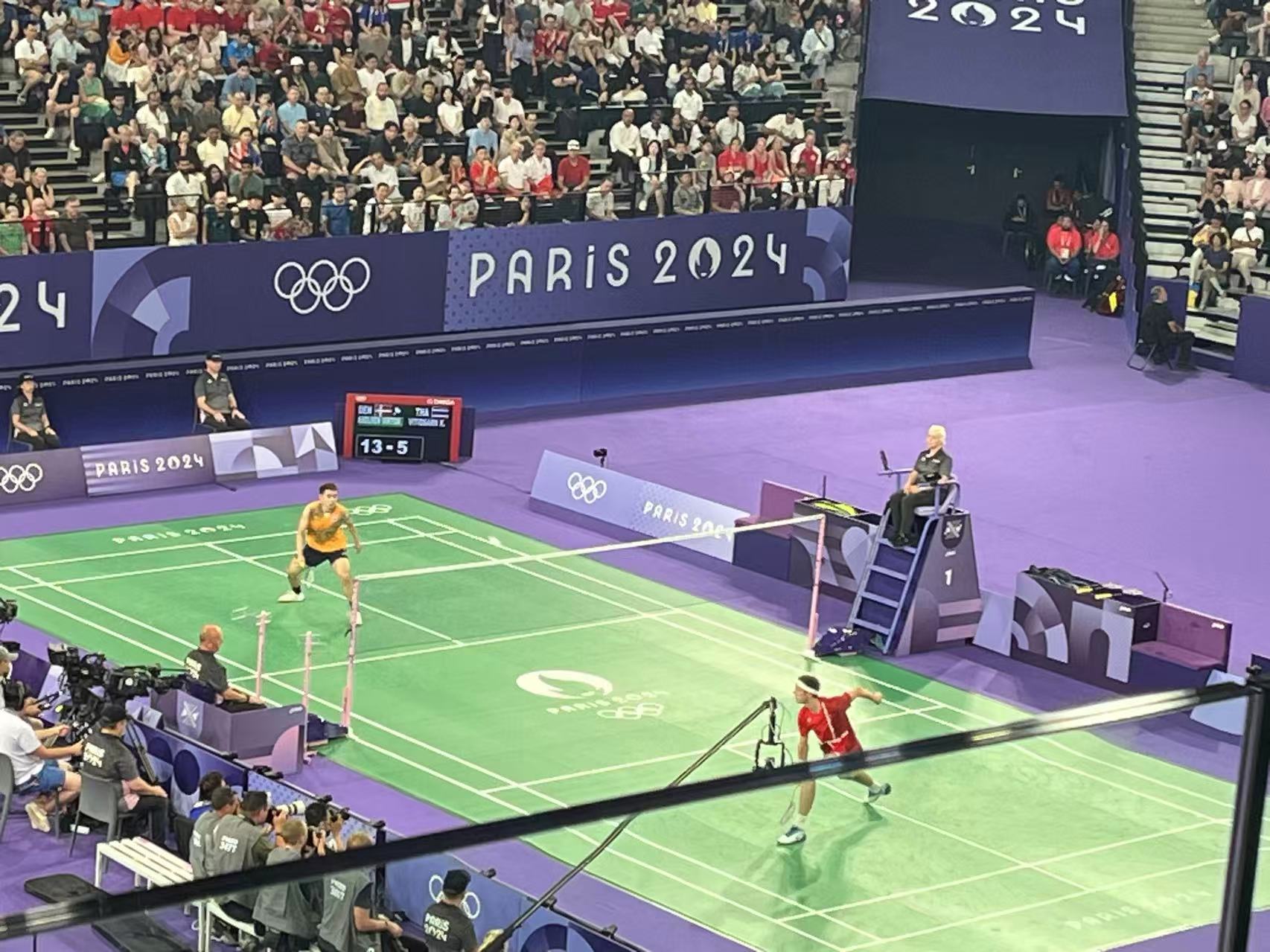
Ski Athletes in Davos ©Helen
In September, Finnish sports tech company Oura Health Oy announced its Series E funding at a valuation around $10.9 billion. Through collaborations with Real Madrid and NBA, the Oura ring has propelled it into the professional sports industry beyond its original positioning as a consumer product. Oura's trajectory offers a compelling lens to view the development of Europe's sports tech landscape over the past decade. This article will explore the emerging trends of the sector and discuss the investment opportunities from a venture capital perspective.
Vertical Funds
In 2019, I attended a sports-tech event in Munich. A review of the nearly 50 startups presented revealed the overwhelming dominance of B2C sports tech solutions. The floor was filled with smart wearables, fitness communities, nutrition products and mental wellness apps, while solutions targeting professional sports were rather scarce. That didn’t represent the absence of innovations for professional sports, as companies like Spiideo (automated filming and analysis platform) and Rezzil (athlete training software) were already making waves back then. However, the concentration on mass-market B2C products spoke volumes about where entrepreneurial energy and venture capital were flowing towards.
The term "sports tech" back then was rather synonymous with "general sports and wellness for public". Consequently, the investors participating were primarily generalist funds like HV Capital (investor of Urban Sports Club) and Felix Capital (investor of Black Crows), alongside funds focused broadly on lifestyle, health, or entertainment, including Lifeline Ventures (investor of Oura and OneFit),The Factory (investor of Recharge Health), and Mercuri VC (investor of Pinnacle). Dedicated sports-tech funds were a rarity in the European startup ecosystem at that time.
While in the recent years, specialized sports-tech VC funds, such as the Dutch Sport Tech Fund (NL), Hiro Capital (UK), and Match Ventures(LU) have come into play, as well as even more vertical specific funds like the APEX Capital (NL), which focus on the B2B products that serve athletes, clubs, and leagues in professional sports and its adjacent industries. Their investments span the entire industry value chain, from athlete performance enhancement, medical support and talent scouting to club management, fan engagement and content marketing etc. The term "sports tech" has narrowed down to the technologies for "professional sports industry", which is also the specific vertical that I would like to focus on in this article.
The rise of vertical funds signal the maturation of ecosystem, as their viability hinges on two critical conditions: Firstly, the total available market is big enough with a robust pipeline of startups requiring funding. According to SportsTechX's Global Sports Tech Ecosystem Report 2025, total funding for sports tech startups reached $58 billion across 2,145 rounds from 2020 to 2024. Despite a relative slowdown in VC activities in 2023 and 2024, the market showed signs of recovery in Q1 2025, with 70 funding rounds totaling $5.2 billion ($3.2 billion across 33 rounds in the U.S. and $2 billion across 29 rounds in Europe).

Olympic Game 2024 ©Yahan
Even though the funding statistics may not match some hyped sectors, fortunately the competition for deals also remains less intense. Worth to notice, is that the existing solutions have yet to fully address all pain points in the industry, leaving substantial opportunities in areas like talent recruitment and youth training, athlete long-term career planning, as well as effective fan engagement and interconnected business models particularly in the context of the new media environment and shifting viewing and consumption habits of GenZ; Secondly, these funds must possess in-depth industry expertise and resources to compete with established generalist funds, especially the prominent U.S. VCs like the SoftBank Vision Fund, to access to the top deals. This underscores the critical importance of the GPs and LPs behind these vertical-specific funds.
Smart Money
As a venture capitalist myself, I confirm believe "smart money" is essential for the healthy development of any startup ecosystem. As sports tech shifts from consumer products toward solutions serving professional sports, does the funding come with in-depth industry expertise and operational experience? Are there industrial resources and strategic synergies to leverage…these factors matter far more than the capital itself. They determine whether financing flows to solutions that genuinely address the right industry challenges and whether resources are effectively accelerating the growth of those companies and the ecosystem as a whole.
Within the management and advisory boards of previously mentioned funds like Dutch Sport Tech Fund and Hiro Capital, besides investors with financial background, we increasingly find former serial entrepreneurs in sports tech, professionals from the sports industry, and even a growing number of "ex-Olympians." Amsterdam-based APEX Capital has gone a step further, enrolling over 100 athletes, not only as LPs in the fund but also form an community that participates in deal evaluation and portfolio support.
Athletes turning investors are not rare, with Shaquille O'Neal and Roger Federer building successful investment portfolios, and Serena Williams and Mario Götze establishing their VC funds. However, their investments have been diversified across sectors rather than concentrated on sports. In contrast, APEX Capital runs a different practice: it pools the resources and insights of athletes and uses financial vehicle to actively advance the sports tech sector and the professional sports industry. As Koen Bosma, the partner of APEX Capital and a former Dutch professional footballer, explains: "Athletes know the game better than anyone. With powerful networks and insights, athletes are the most strategic investor in sports."

Moreover, sport clubs are also entering the ecosystem. FC Barcelona's Barça Innovation Hub operates a dedicated venture capital arm that has already invested in over ten sports tech startups. Recently, COMO 1907 also partnered with athlete-backed Players Fund to establish COMO Ventures, leveraging the club's sports resources to invest in opportunities including sports technologies. The ecosystem is further maturing with participation from adjacent industries. Red Bull Ventures, the VC fund of the energy drink brand, also joined hands with APEX Capital. According to SportsTechX research, beyond Europe, technology giants with substantial new media resources, such as Apple, Amazon, and Netflix, are also demonstrating growing interests in the sports sector.
Emerging leagues
Regarding the investment topics, besides the typical software and hardware solutions, a distinctive class of IP assets has drawn more and more attention from VCs since 2020, which is emerging league.
Investment in sports leagues and clubs has long been a strategic focus for sovereign wealth funds and private equity. A notable example is CVC Capital Partners, which acquired a 15% share in the Six Nations for £300 million and later purchased a 27% share in the Pro14 for £120 million. Due to Europe's predominantly member-owned league structures, investment has largely concentrated at the club level. PE firm Arctos Partners holds a 12.5% stake in French Ligue 1 club Paris Saint-Germain, while sovereign wealth fund Saudi Arabia's Public Investment Fund (PIF) secured an 85% controlling interest in Premier League side Newcastle United, and Abu Dhabi's Mubadala Investment Company maintains 81% ownership of City Football Group (CFG) – a multi-club empire including Manchester City FC (UK), New York City FC (US), and Melbourne City FC (AU), among others.
VC fund have never been an active player in this asset class. This is partly because the investment for mature leagues and clubs is way beyond the VC ticket size, and partly also due to differences in investment mandates and exit strategy, which are often incompatible with the lifecycle of VC funds.
Nevertheless, possibly inspired by the earlier investments in gaming IP and E-sport leagues, the emerging sport leagues have also been added into the deal flow of early-stage VC funds in the recent years. This shift has directly led to early-stage financing deals such as the Baller League (a 6-a-side football league), which was led by Swedish VC EQT Ventures with co-investment from the Netherlands APEX Capital and U.S.-based Courtside Ventures.
Similar leagues include the cricket tournament The Hundred (UK), and 7-a-side football leagues Kings League and Queens League (ES). These emerging leagues are born with more digitalised operations and designed with emphasis on watchability and interactivity, which attracts more young audiences. Additionally, many of these new leagues place greater focus on women's competitions, not only expanding the audience market but also promoting a more gender-equitable sports culture. Furthermore, there is a growing number of new sports gradually becoming formalized and IP-driven, such as padel, pickleball, and frisbee. Some of these sports have even begun to develop distinct cultural identities and community influence, much like how padel has gained popularity within the startup and VC circle. The boundaries of the sport industry are expanding.
When it comes to exit, while PE investments in leagues and clubs focusing on long-term holding and IP value increasing, which could take decades, VC funds have only 5-7 years lifespan typically. Is this timeframe sufficient for returns on investments in emerging leagues? Koen Bosma offers a compelling perspective: although these emerging leagues are still in their early stages and lack historical data to precisely estimate return periods, VCs can still adopt two strategic approaches: First, allocate league investments across multiple funds for portfolio management. Second, as shown with their early investment in Tomorrow Golf League (founding in 2022 to Series A round in 2025), such startups are capable of generating substantial returns on paper within a typical VC fund’s lifecycle. Thus, exits via secondary market sales or to strategic investors represent highly feasible paths to exit.
Conclusion
In Europe, VC seldom chases the notion of “hyped trends” in explicit terms. Yet, what we observe today, is the steady maturation of sports tech ecosystem, with industry resources increasingly leveraged and integrated. While innovations in traditional tech investment remains far from saturated and awaits accelerated development, emerging sports leagues are not only unlocking new markets but also subtly reshaping the industry landscape. To invest in a market that is rapidly evolving and still amplifying its potential, if now is not the right timing, then when?
更多精彩内容,关注钛媒体微信号(ID:taimeiti),或者下载钛媒体App

